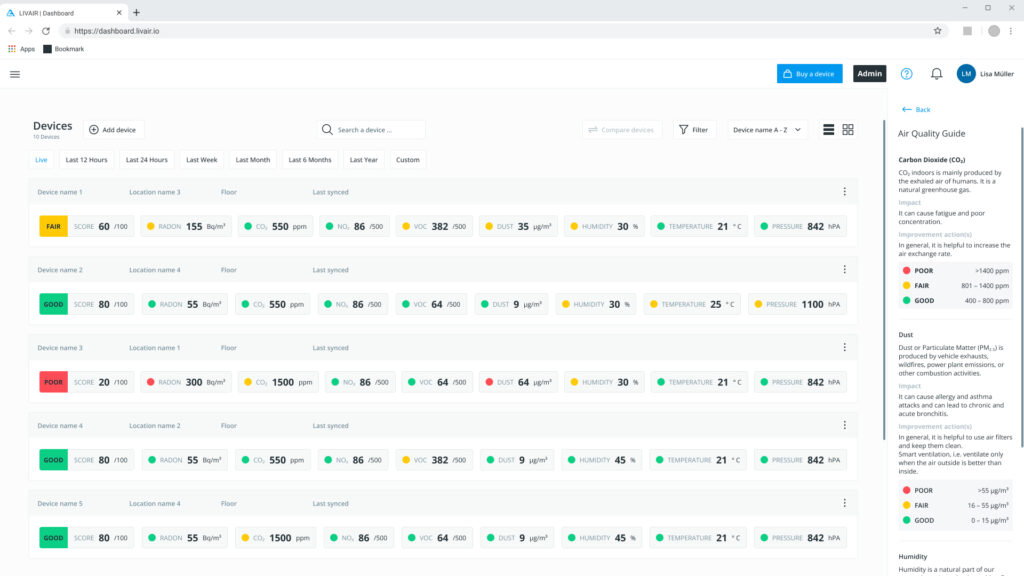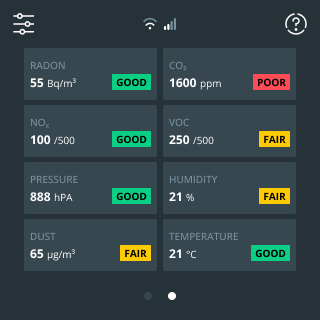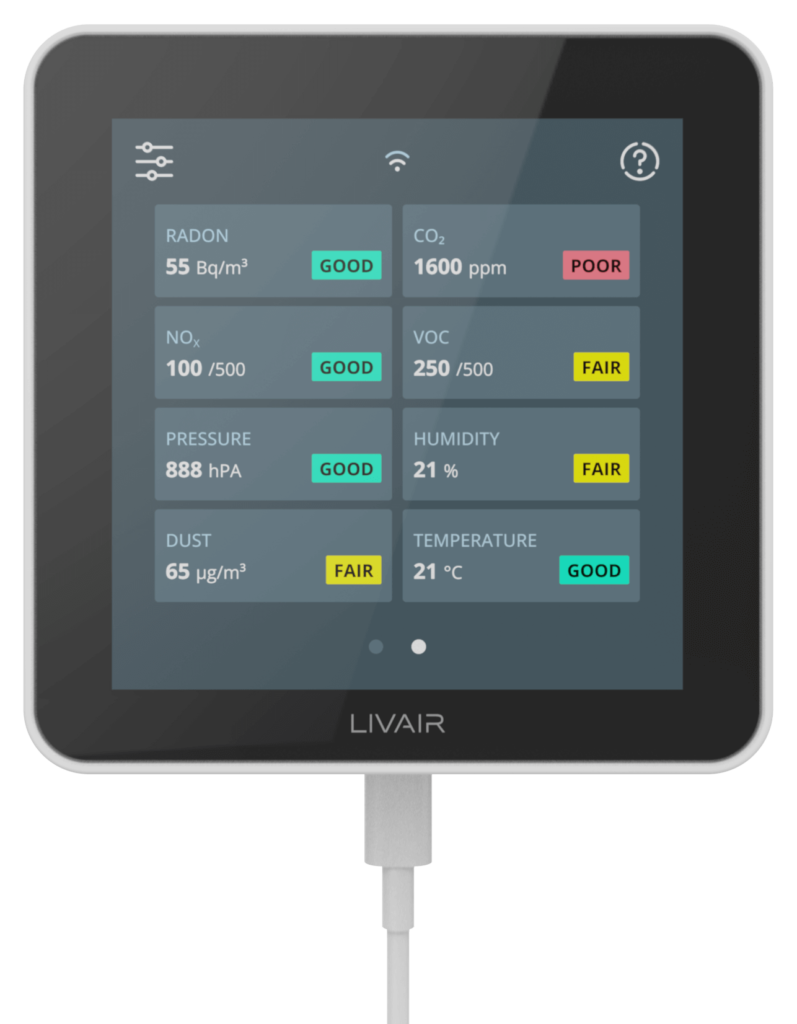Too much or too little moisture leads to cold and flu symptoms and carries the risk of toxic mold.
Dehumidifiers can reduce humidity and eliminate the risk of mold. If the air is too dry, the air can be humidified.
- 0 - 14 %, 81 - 100 %
- 15 - 39 %, 60 - 80 %
- 40 - 60 %
Origin
a natural part of our atmosphere
Effects
can lead to cold or flu symptoms; can promote the spread of mold, viruses and bacteria; can cause respiratory diseases
Improvement measure(s)
Humidifying or dehumidifying the air


You can find all your real-time results in our dashboard with integrated air quality guide
The Air Quality Guide (AQG) is designed to help users quickly and easily classify their measured air values on a scale.
It will inform you about the origin of the relevant air factor, what effects it can have on your health and well-being and give you some general improvement measures that can work if you don't have complex problems.
LivAir One - the most intelligent air quality monitor
The LivAir monitor is equipped with a variety of sensors. The centerpiece is our patented radon sensor.






Make the invisible visible
and book your consultation now!
Take a look at how Livair ensures better indoor air.
- invest only 20 minutes of your time
- completely non-binding
- 100% Added value for you
Find out more about our other built-in sensors
We all try to avoid moisture in our homes. It is generally undesirable and causes condensation and mold on our windows. However, damp is not just an unpleasant problem. According to the Harvard Annual Review of Public Health, there has been overwhelming evidence for over forty years that the buildings we all live and work in have an impact on our human health. If we monitor the air quality in our indoor spaces, we can avoid the negative effects of humidity. Humidity that is too low has been shown to promote the spread of infection, while high humidity can affect more than just our homes and our health.
What can cause damp indoors?
Condensation
Leaking pipes
Water ingress
Insufficient ventilation
How does indoor humidity affect our health?
Excessive humidity can lead to mold growth. This can have the following health consequences:
Breathing problems
Allergies
Asthma & respiratory diseases
More susceptible to infections
How does indoor humidity affect the building?
Moisture indoors can also affect the building itself. It can cause structural damage, such as rotting wood or rust on metal objects. Moisture can also lead to mold growth and spread, which can affect the integrity of walls and ceilings.











